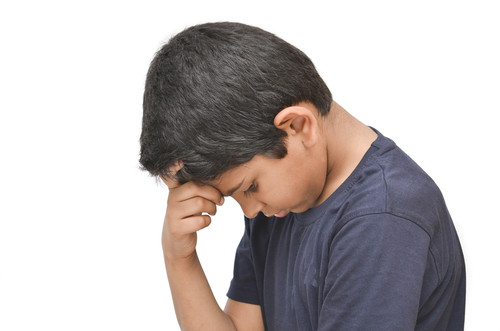
Photo: Shutterstock
The Central Board of Secondary Education (CBSE) has recently taken steps to tackle bullying in schools by providing guidelines on how to deal with it. These guidelines include cyber bullying, a form of harassment that often goes unnoticed due to the use of devices such as mobile phones and laptops among children and the lack of accountability on social media, where information exchanged is often unsupervised.
Senior consulting psychiatrist Dr. Rajiv Palsodkar was quoted in Times of India, saying, “I believe that bullying has existed in school for a long time. It was present commonly in the form of physical and verbal aggression. But, now, as times have changed and methods of communication have changed, we now have cases of cyber bullying also coming up in the last few years.”
Bullying is a serious issue, one that can have huge negative effects on the psyche of a child and should be picked up on and dealt with a in a reassuring and delicate way as victims often become withdrawn and suffer in silence. Dr. Rajiv added, “Bullying dents the confidence and self esteem of the victim and it can have long term impact on overall development. Steps must be taken to mitigate such incidents.”
Victims often choose not to speak about being harassed for fear they will be victimized further or won’t receive the right kind of assistance. Dr. Rajiv said, “Many times these kids are confused about whom to approach for help. My simple advice to them would be to talk and be open to the near and dear ones about their sufferings. Keeping mum is not going to solve their problem at all and may probably make it worse. Everyone needs to take help of others at some point in life, so there is no shame in taking help.”
He further advises parents to try and communicate compassionately with their children by listening to them patiently and not being dismissive about the seriousness of their complaints. “Parents have to spend more time with kids. Due to nuclear families and busy schedule of parents, families spend little time together with little opportunities to interact. This can be, and must be, avoided. Also if parents notice subtle changes in behaviour of victim it must raise a red flag. Suppose the child starts avoiding friends, going to school, staying aloof or looking tense and anxious then parents must immediately try to find the reasons.”
compassionately with their children by listening to them patiently and not being dismissive about the seriousness of their complaints. “Parents have to spend more time with kids. Due to nuclear families and busy schedule of parents, families spend little time together with little opportunities to interact. This can be, and must be, avoided. Also if parents notice subtle changes in behaviour of victim it must raise a red flag. Suppose the child starts avoiding friends, going to school, staying aloof or looking tense and anxious then parents must immediately try to find the reasons.”
In severe cases, counseling may also be helpful to help build a child’s damaged self-image and avoid long term implications that are associated with traumatic events such as depression and anxiety. ” Attempt must be made to evaluate psychology of both, the victim as well as one involved in bullying. Psychiatrists, psychologists, teachers, parents should work as a team to deal with issue,” Dr. Rajiv concluded.
